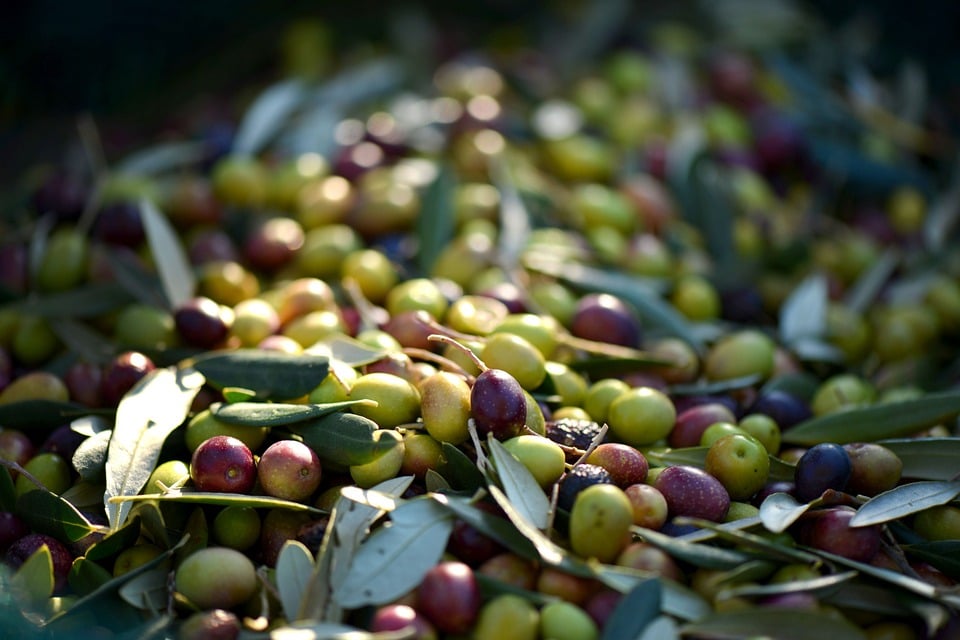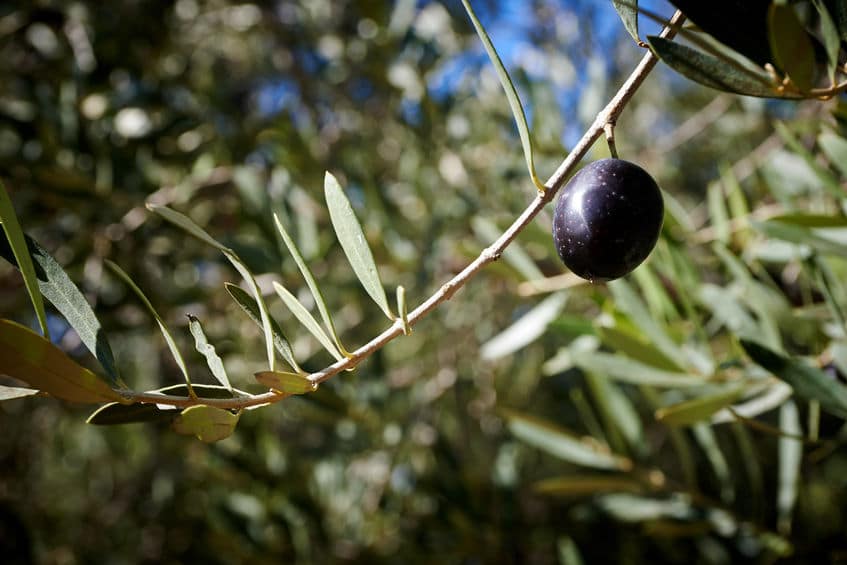What do Psilolia, Kritikia, Ladolia, Koroni, Vatsiki, and Lianoli have in common? They are all different names for the olive that has the collective name Koroneiki. We love for you to know the Koroneiki-olive a little bit better since it is the basis for the extra virgin Gzakas Olive Oil!
Characteristics of the Koroneiki-olive
The Koroneiki-olive is about 3000 years old and, as far as we know, originates from Greece. Nowadays, 60% of Greek olives are Koroneiki-olives. Its weight is usually between 0,3 and 1 gram, its length varies between 12 and 15 millimeters, and it has an oval, raindrop-like shape. The Koroneiki-olive ripens between October and December. This is why we usually harvest around that time as is written about in our post about the winter harvest. Sometimes the olives are still green, but usually, most of them are darker. The Koroneiki-tree is also gaining fame in other countries. This due to its low maintenance and ability to withstand relatively low temperatures. The Koroneiki-tree can now be found, for instance, on orchards in the United States.

Taste of the Koroneiki-olive
When trying a Koroneiki-olive or our olive oil it occasionally happens that the taster has to cough a bit. There is a reasonable explanation for this; the Koroneiki-olive has a natural peppery taste. The itch in the back of the throat is caused by its robust taste. The Koroneiki-olive is also known for having a piquant pear flavour. This gives the olive its distinctive, delicious flavour. Besides being delicious, the Koroneiki-olive is also quite healthy. These olives and the extra virgin olive oil we make out of them contain a lot of polyphenols (botanical with medicinal qualities).

Discover the Koroneiki-olive (oil)
There are a lot of good reasons to try the Koroneiki-olive (and its oil) and we would like to refer you to our webshop to do so. Even more important, however, is that we hope you can taste the difference between our Koroneiki-olive oil and the regular extra virgin olive oil from your local grocery. Did you notice the pepper? Itch in your throat? We would love to know what you think about it. Please don’t hesitate to share your experience, feedback, and comments on our Facebook.
Find your size
5 liter organic olive oil can
€94,95
Free shipping
Pomace olive oil 1 liter can
€13,98
New
Extra virgin olive oil 5 liter can
€74,95
Most chosen
750ML organic olive oil bottle
€21,11
Popular












